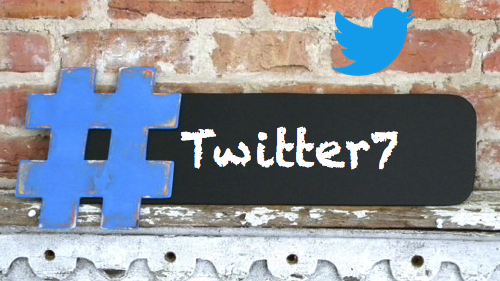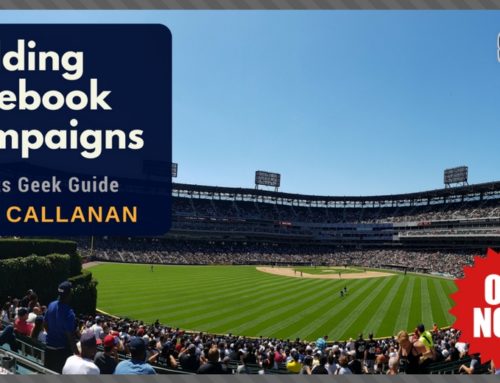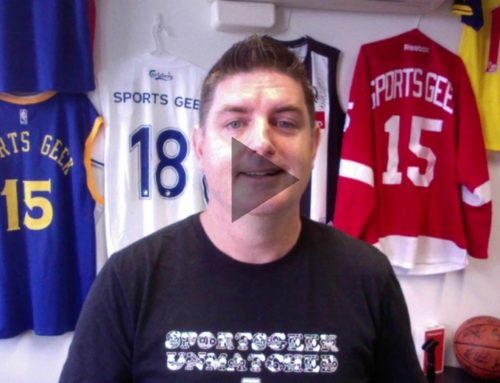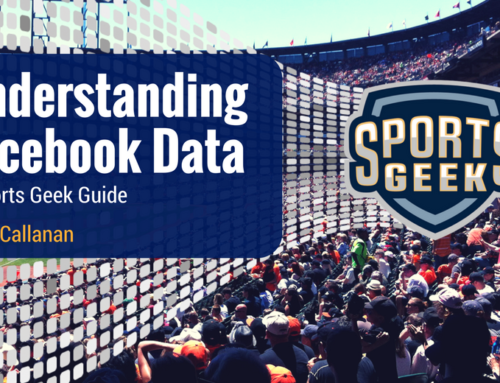Today mark's Twitter's 7th Birthday, happy birthday Twitter.
For 7 years it's been the first thing I check when I wake up. Happy Birthday, Twitter! I'm so proud of you. twitter.com/jack/status/29
— Jack Dorsey (@jack) March 21, 2013
It got us thinking of sports stories that would have rocked the Twitterverse before 2006.
After a robust discussion at Sports Geek HQ, we stopped at 7 but we have plenty more.
Vote on the Listly list which you think would have been the biggest story and add your own story we are very interested to see the results.
Listen to ABC Grandstand each Saturday
We discussed this post on ABC Grandstand on Saturday
You can follow Francis Leach and ABC Grandstand on Twitter.
Want to get these clips in podcast form? Subscribe here or Add to iTunes.
Podcast transcription
Francis: It is Francis Leach with you. Sean Callanan is from Sports Geek HQ talking sport in the digital space. Twitter, Facebook and social media. Hello Sean, how you going?
Sean: I’m pretty good Frank, yourself?
Francis: Not too bad. 7 years old Twitter this week.
Sean: Yes, it turned 7 a couple of days ago. I don’t know how long you’ve been on but I jumped on about late 2008. It’s definitely changed, as we discussed here, it’s definitely changed the landscape for the sports scene and really seen some stories in the last 7 years really blow up. Even in the last couple of weeks, the whole drugs in sports scenario has really exploded and got bigger via Twitter. And that’s the thing, when live is happening which is where sport thrives, where Twitter is now thriving. So what I was thinking of was, what would the sports landscape look like if Twitter existed before 2006? So what are some of the big stories we would have seen Twitter really get its teeth into? I compiled a bit of a list and I sent out via Twitter asking a few of my ‘tweeps’ for different ones. Do you have any big stories that Twitter would have grabbed hold of?
Francis: There are a couple that spring to mind, definitely. There are things, the Kieren Perkins one would have been for me. When he was swimming in lane 8 in 1996, everyone was fascinated to see how he went and it would have been an event that led itself to gravitating towards it…
Sean: Fifteen minutes and everyone starts…
Francis: Three laps in and you better check this out because he’s you know, Daniel Kowalski is now looking at his toes. That would have been perfect for it.
Sean: And that’s the kind of one where people would be watching it, they’d start using the hash tag Perkins or ‘Go Kiere’ and your feed would have started filling up with tweets related to Kieren Perkins. So that’s exactly how Twitter is working now. For mine, I think from two really big moments, more controversial because Twitter loves a little bit of scandal is the Mike Tyson bites Evander Holyfield. That would have both exploded on Twitter, would have generated a meme, we wouldn’t have heard of ‘Charlie bit my finger’ because we would have had ‘Tyson bit my ear’. And then the other one was the OJ Simpson Bronco chase. Which, effectively, went completely viral using old school media on the TV. But I’ve got a friend of mine, he was in San Diego at the time and they were all watching the sports, I think it was the NBA finals, a really good documentary on that week on that day… They were watching the NBA finals and then it broke into coverage that the chase was gone and everyone left the bar because the highlight was down the road. They went out to have a look and were effectively waiting for OJ to come past at 40 miles an hour so again you can just imagine one, the frenzy that would have happened on Twitter. But you also would have had all these people taking photos and sharing them as it’s going past.
Francis: I reckon Cathy Freeman in 2000 would have been massive too. The build up to it, the race itself, people in the stadium. The only problem being that you probably wouldn’t have had…
Sean: We wouldn’t have had the coverage, but you do see all the flashes go off. So we’ve got all that photographic evidence of her but no one really shared it. Whereas now, if that happens at an Olympics, people will take it, they will share it. We have discussed that they can’t share it there and then but a lot more of those shots would be on the internet, on Vine or Instagram or you know YouTube, those kinds of things.
Francis: I was lucky to be at the last two world cups that Australia were in. Those events would have lent themselves… particularly when Australia played Japan and they came from behind to win, and it was such a fantastic festive atmosphere before, after and during the game. Different time zones, different experience to be able to capture photos and little videos and being able to post those up on Twitter so that people back in Australia could be taken there to enjoy the moment. That would have been fantastic.
Sean: We’ve already seen little bit with the previous World Cups but the amount of the whole world joining in – and we talked about the second screen – but everyone at home, whether it’s 3 in the morning or whatever, you wouldn’t feel alone if you’re the only one in your house watching the game. You can go to Twitter and everyone else is watching and everyone else is playing.
Francis: Well Cadel’s tour was a perfect example of that. That was for Australia, a television and a Twitter event. For the community to catalyst around the Tour de France as he rode the last week was amazing.
Sean: And so it does raise some points, some of the points were raised, some went way back to the 1919 Black Socks and the scandal there.
Francis: Babe Ruth leaving the socks! I would have been all over Twitter that day!
Sean: Just imagine the memes coming out because the Don has scored a duck in his last game. The other one that came up was in 1983, obviously the Americas cup win, just imagine Bob Hawke being able to control a smart phone, taking pictures of the party! Another one we’ve seen Twitter used is player solidarity and that type of thing especially with the AFL PA and the NBA and the Lockout. So just imagine if Dennis Lillie or Rod Marsh had of had Twitter during the World Series cricket launch and the debate and the fight they were having with the establishment. There would have been some classic material coming out.
Francis: Since Twitter’s been here, what do you think in terms of sport has been the story that has most been either changed or been played out via Twitter or the social media?
Sean: I think again, it does lend itself to the scandals. I think the big events like the Olympics, the Super Bowls, those kind of things when it’s viewer participation and we’re all having that group experience. But from stories point of view, I think drugs in sport has become very big whether you’re talking the Lance Armstrong thing to start with.
Francis: Well the Armstrong thing is a perfect example because he engaged in it. Who could forget, probably his last ever tweet, or one of the last ones of any really note of him, posting that photo of himself lying on his couch like a king in his castle with his yellow jersey.
Sean: And he had the most controversial bio change in Twitter history where he took away… He took the Tour de France off his bio and he changed it to ‘I’m a guy who rides a bike’ or something along those lines. I think that’s been pretty big to a lesser extent to the Tiger Woods stuff, hasn’t really broken. He wasn’t on Twitter when it all happened but Lance Armstrong was using it. So I think that’s probably the biggest story from that side of things. But definitely the live events…
Francis: What’s been your favourite that you found yourself tweeting away within that organic community that jumped up around a sports event?
Sean: I think the Cadel Evans was a big one. I think the Olympics was big but it was strange for me, I was in the States for a lot of the 2012 Olympics and the time shift that was there so that’s where it jarred a little bit. I think it is just when, I like it when I’m watching a game, that I’m not super invested in but then something happens and you feel compelled to talk about it or respond to someone else. I guess last night, the AFL and the new rules, get a bit of a test out and you could see the people, the frustration with the new rules and the sliding and all that kind of stuff. It kicks people up. So that and award ceremonies are always a good one.
Francis: Endless supply! [Laughs]
Sean: Endless supply of material! Eurovision is one where you’ve got to watch Twitter because it’s better than the Terry Wogan commentary because everyone decides to do it themselves. So that’s where it works really well. And I think the next part is what are the next big stories that are going to either break or at least be amplified by Twitter.
Francis: Good on you Sean, thanks for coming in!
Sean: No worries.





